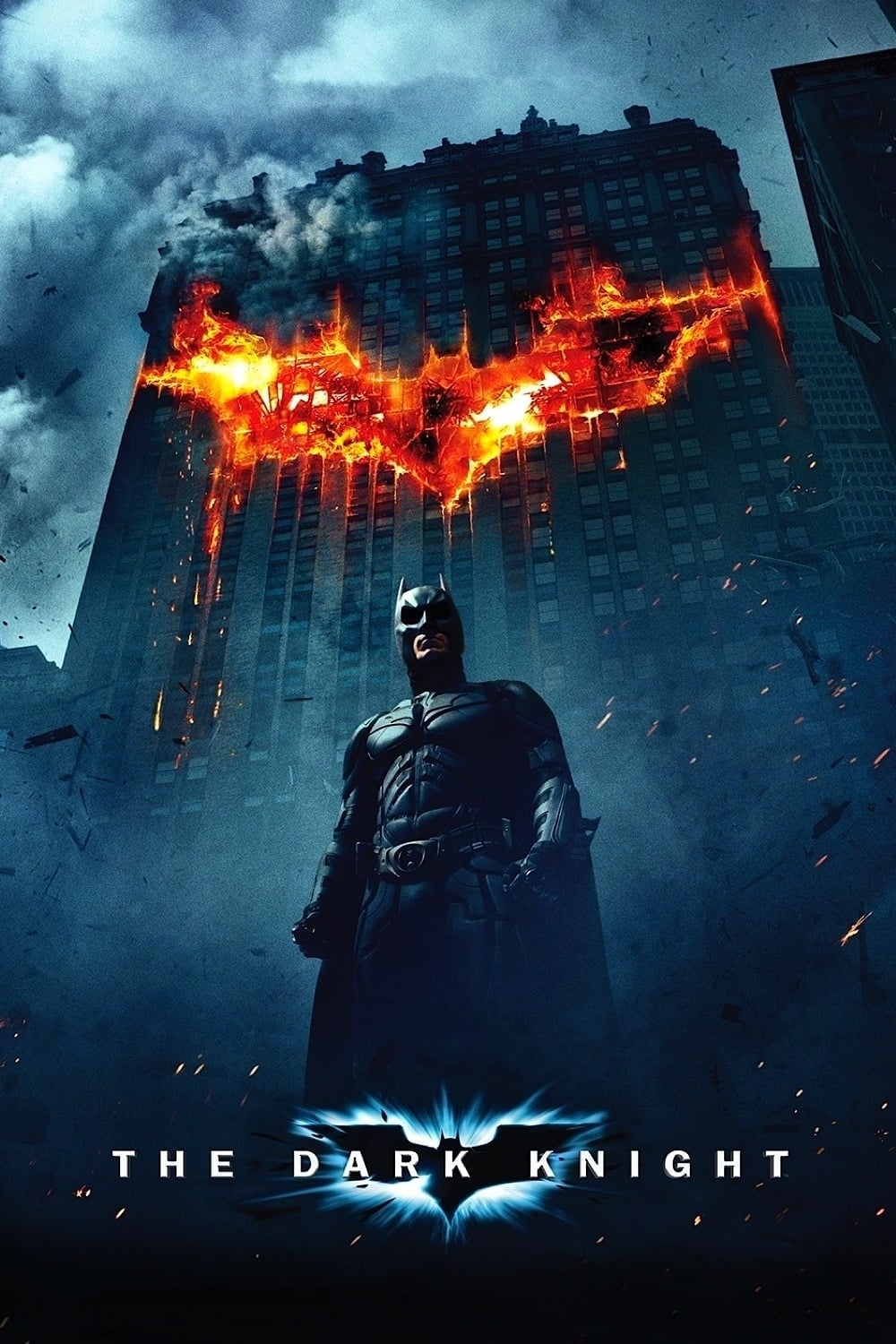
Batman raises the stakes in his war on crime. With the help of Lt. Jim Gordon and District Attorney Harvey Dent, Batman sets out to dismantle the remaining criminal organizations that plague the streets. The partnership proves to be effective, but they soon find themselves prey to a reign of chaos unleashed by a rising criminal mastermind known to the terrified citizens of Gotham as the Joker.
17 May The Dark Knight (2008)
The Noir Card
Two things interesting about this for me. (I’ll let others talk about Heath.)
One is how much more of a comic book it is than a film. I don’t mean that it is sillier or more fantastic, but that the values seem to be based on storyboards as panels. The implications are pretty interesting. All those Marvel productions are pretty much the same: the same level of fantasy, the same vocabulary of cinematic effects. The same slant from “graphic novel” framing to modern film traditions — which incidentally are less designed than are the accidents of common CGI compositing tools.
This on the other hand is not cinematic. It makes it boring for me visually, but there’s another result: the story. The story is not your standard long form arc. Its at least four stories concatenated, as if you would read a few pages and come back at the next lunch break. It rambles, it has real comicbook soap opera. I really do think of this as a comic book that accidentally finds itself in a film.
That’s as opposed to “Sin City,” which though based on a comic, and supposedly co-directed by the comic artist, is intensely cinematic, so much so you almost drown.
The other feature for me: the handling of noir.
Noir is all about how the viewer manipulates the action by viewing. It has permeated nearly every corner of film and most intelligent filmmakers try to play with it. It is the primary narrative tool we have to add depth by adding layers. The Nolans are intelligent filmmakers. While the film isn’t very cinematic, the script is, in this regard.
The novel trick here is the joker. Sure he is played well, and Ledger was becoming one of our foremost folded actors. But the thing works because the role was written to matter, and that’s because he introduces a double noir fold. The watcher is in the film, and the watcher is “writing” the script regardless of any action that anyone in the film can take. Its classic noir doubled. The joker’s key speeches even cover all the noir highlights: you have to ruin routine; you have to profoundly affect, even kill random innocents; you have to express an amazingly complex orchestration and make it seem capricious, accidental. You have to deny intent and complexity. You have to pretend to not be amused.
All these things are embodied in what Ledger was given. This is very important writing, and if you know “Prestige” and “Memento,” even “Following,” you would have expected something like this. Even if the film isn’t good as a film, the writing is, and that allows Heath to make a film within. Its why “Clockwork Orange” is so important.
Posted in 2008
Ted’s Evaluation — 3 of 3: Worth watching.


No Comments